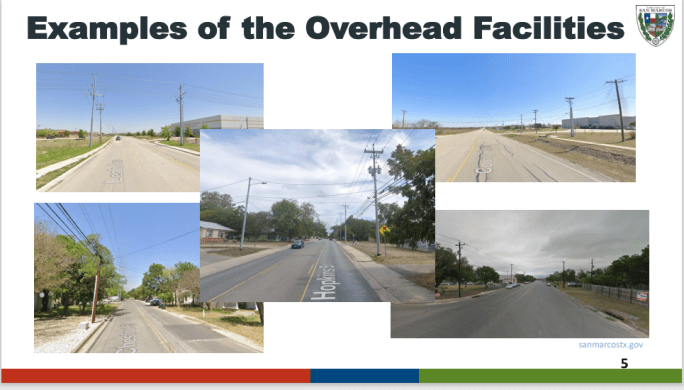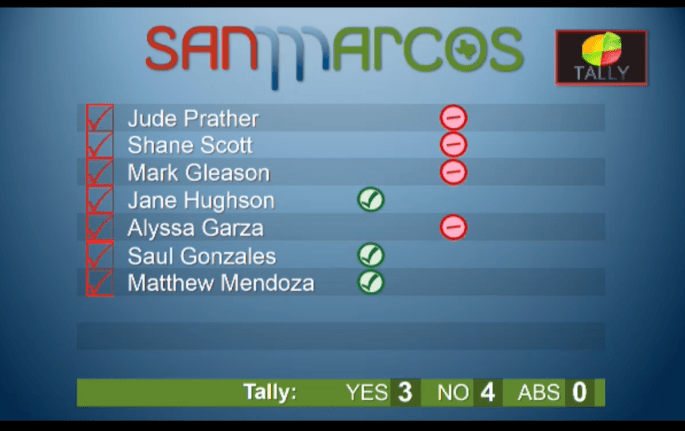Items 15-16: Burying power lines
All new developments have to bury their power lines.
In other words, this is bad:

whereas this is good:

There’s a lot of reasons why this is good practice:

Ok, great.
Whisper South and Whisper South Industrial are here:

Whisper South has requested skipping burying their electrical lines. Staff denied the request. So they appealed to City Council.
City Council agreed with staff, and denied the request as well.
Good job, Council!
…
Items 17-18: The Neighborhood Commission
Maybe the Neighborhood Commission is my arch-nemesis? I disagree so hard with them that steam is coming out my ears.
They sent Council two resolutions, on Occupancy Restrictions and Purpose Built Student Housing.
- Occupancy Restrictions
Back in April 2022, Council voted to loosen occupancy restrictions from a max of 2 unrelated people in a house, to a max of 3 unrelated people in a house. Unfortunately, the code wasn’t updated for another 18 months. By this point, Max Baker was off Council and Matthew Mendoza was on it.
Matthew was in a panic over the idea of 3 unrelated people living together. He tried to get everyone to vote against it, and it failed, and then tried one more time. He clutched his pearls so hard that he’s probably infertile now.
It finally passed, officially, in October. So it has been in effect for six months. But in a sore loser move, a subcommittee was put together “to study the issue further”.
The Neighborhood Commission is pissed off.
They want the rule to revert to a max of two unrelated people.
Listen: a cap of two unrelated people is batshit crazy. They clearly hate students, but banning students effectively bans poor people as well. (I really don’t care if that’s accidental or on purpose.) This prevents poor people from pooling their resources and being able to afford the rent in a quiet neighborhood. That’s super gross!
Who actually thinks City Council should be in the business of policing who is married? Why are we micro-managing people’s private lives this way?!
Usually people will say “It’s about parking!” or “It’s about noise!” or “It’s about wild parties!” But there are other mechanisms for dealing with noise and parties. (Namely code enforcement and rental registries for landlords.)
What about the extra cars, parking on the street? Listen: your desire to keep street spots empty is less important than other people’s right to affordable housing. I don’t know why we allow “empty street spots” to be a weapon that existing home owners can wield against renters. Home owners do not have a right to keep street spots empty.
But let me be fair: surely the neighborhood commission gave thoughtful reasons, right?

Unless I’m missing something, they’re saying that three friends living together is causing all this:
- Rising costs of home ownership
- Impact on residents remaining in their homes
- Impact of landlords attempting to put 3 unrelated students in a home
- Negative impact on the neighborhood
Wow. That is high on blame and short on details. If something is going on, spell it out explicitly, because right now it looks unhinged. (Also home prices are currently falling.)
What does Council do?
Remember the subcommittee that was formed? It hasn’t met yet, mostly because it doesn’t have a purpose.
Jane Hughson calls for the subcommittee to meet within 30 days. The subcommittee is Matthew Mendoza, Mark Gleason, and Alyssa Garza.
Shall they meet?
Yes, they must meet!! Jane, Matthew, Mark
No, it’s over, this is dumb: Alyssa, Shane, Jude
So the informal vote fails. They do not need to meet.
But wait! There’s more from the Neighborhood Commission!
- They hate Purpose Built Student Housing and rent-by-the-bedroom leases.
There is an argument that RBB leases are predatory. (I don’t exactly agree, but we’ll talk about this extensively in the Bonus P&Z section.) But for now, it’s safe to say that the Neighborhood Commission is not upset because students are being exploited.
The Neighborhood Commission is saying this:

They do not want student housing complexes. I think this is clear.
So let’s summarize: they do not want students renting houses in neighborhoods. They also do not want apartment complexes to cater to students.
This is just delusional. Look, we have a university! With a lot of students! They are entitled to live in this town!
If students are throwing obnoxious parties, then we need to properly fund Code Enforcement to shut those down. If you have a problem with rentals, hold landlords accountable. This commission thinks that shutting off the actual supply of housing – this human right that we all deserve – will somehow lead to different behavior by students.
What does Council do?
It’s a little perplexing. Jane Hughson moves to postpone the discussion.
Her explanation is that they didn’t put Rent by the Bedroom (RBB) on the agenda, and so legally Council cannot discuss it. She wants to put both RBB and Purpose Built Student Housing on the agenda, so that Council can have the appropriate discussion.
But this is just wrong. Look at the agenda:

Rent by the bedroom is actually right there, on the agenda! How did no one correct her? They literally read that blurb out loud at 1:30:56, here.
(I mean, I truly don’t care. Let’s postpone. It’s not urgent.)
….
Council or city staff: if you’re reading this, I do have one practical suggestion:
If you’re going to regulate RBB leases, you should require that leases include an option to rent by semester, for a modest surcharge. Students need some flexibility to be able to take internships, or graduate in December, or move home for the summer.
Since the complexes are profiting off of being quasi-dorms, they should provide this benefit specific to students, like a dorm would.


